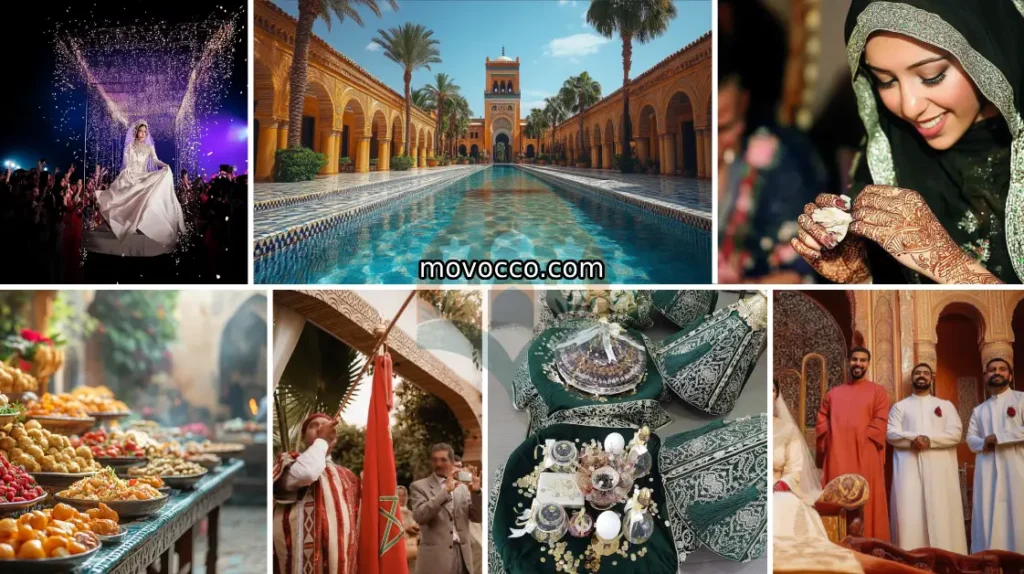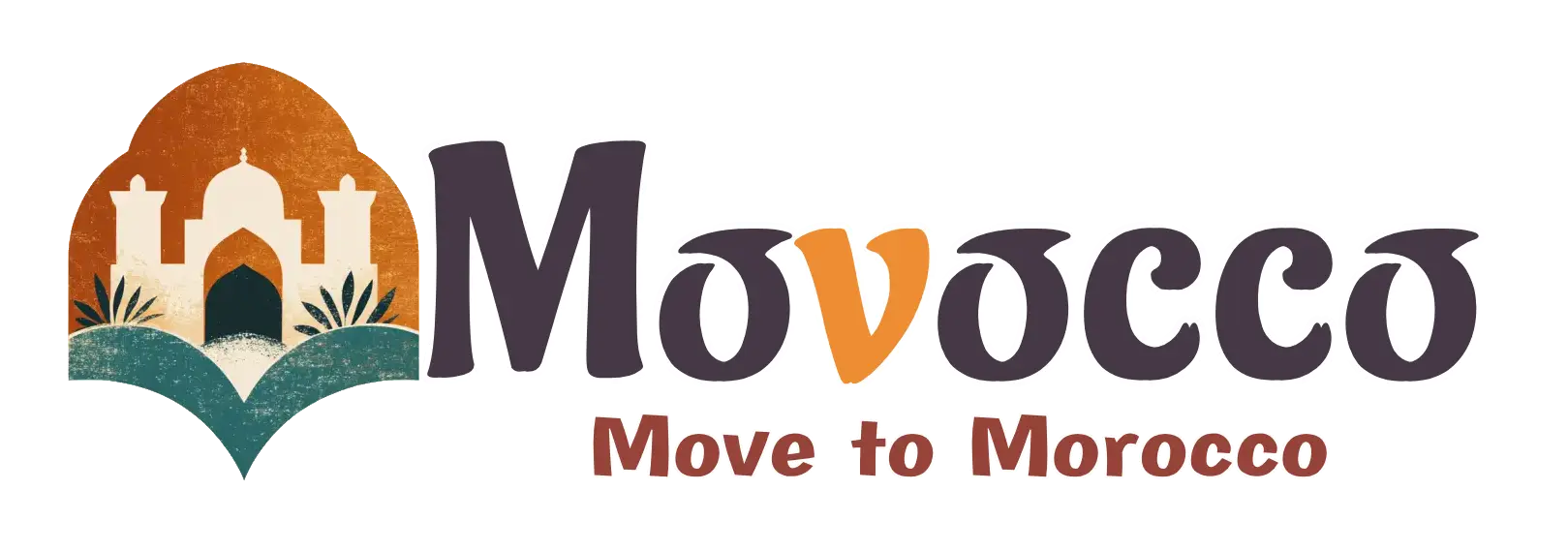Morocco has become a highly sought-after destination for weddings, blending its vibrant culture, historic charm, and diverse landscapes into an unforgettable setting. With its exotic cities, rich traditions, and a wealth of beautiful venues, Morocco offers endless possibilities for couples dreaming of a unique wedding experience. Whether you’re a local or a foreigner planning to wed in Morocco, this guide will provide comprehensive insights into everything from wedding costs by city to traditions, requirements, and frequently asked questions to make your special day extraordinary.
Getting Married in Morocco: Local vs. Foreigner Requirements
Eligibility:
In Morocco, both locals and foreigners are welcome to marry, but requirements differ. Foreigners, including tourists and expats, must provide specific documentation and meet residency requirements in some cases, depending on nationality and marital status. Here’s a breakdown:
- Local Requirements: Moroccan citizens follow a straightforward marriage process overseen by religious or civil authorities. For Muslim couples, a marriage contract (“Moudawana”) is registered with local officials, generally without extensive documentation.
- Foreigner Requirements:
Foreign couples must present valid passports, birth certificates, and certificates of nationality, along with proof of legal eligibility to marry (such as a certificate of celibacy or no impediment). Non-Muslim foreigners marrying in Morocco may face restrictions if one or both parties are from countries with differing marital laws. - Residency Requirements for Foreigners:
Some foreign nationals may need to establish a temporary residence (minimum 21 days) before a wedding license is issued. Consulting with Moroccan authorities or a wedding planner who understands local regulations can streamline this process and provide guidance on timelines and official translations for documentation.
Tips for Foreign Couples:
Hiring a local wedding planner, engaging an English-speaking translator, and working with an attorney for document reviews can make the entire process smoother and more enjoyable. Legal and cultural nuances in Morocco often require the expertise of those familiar with local customs and regulations.
Traditional Moroccan Wedding Customs and Rituals

Moroccan weddings are known for their multi-day celebrations, intricate customs, and meaningful traditions, reflecting the country’s diverse cultural heritage.
- Pre-Wedding Ceremonies:
Moroccan weddings often begin with the “Henna Ceremony,” a pre-wedding ritual held to bless the bride, symbolizing joy and beauty. Henna is applied to the bride’s hands and feet, accompanied by music, family festivities, and traditional attire. - Wedding Day Processions and Attire:
The wedding day typically includes a grand procession where the bride is carried in an “Amariya” (a decorated bridal chair). The groom wears a “jabador” and traditional Moroccan attire, while the bride is adorned in a beautifully embroidered “caftan.” - Role of Family:
Weddings in Morocco often have strong family involvement, with both sides participating in planning and contributing to the event’s expenses. While this tradition remains strong, some families may adopt modern practices where costs are shared between the couple. - Polygamy in Morocco:
While Moroccan law permits men to have up to four wives under Islamic law, polygamy is now rare and strictly regulated. A man wishing to marry additional wives must have explicit permission from existing spouses and meet several legal requirements.
Average Cost of a Wedding in Morocco: By City and Wedding Type
Costs vary widely depending on location, venue choice, and level of extravagance. Here’s a breakdown by city to help you plan a budget:
- Marrakech: Known for luxurious riads and grand resorts, Marrakech is popular for high-end weddings, with options ranging from traditional Moroccan palaces to modern, high-style venues. Expect a premium for iconic spots, with weddings ranging from $15,000 to $80,000 for luxury events.
- Casablanca: Morocco’s largest city offers urban elegance with a mix of classic hotels and contemporary venues. An average wedding here can cost from $10,000 to $50,000, depending on scale and venue choice.
- Fes: Ideal for those seeking a historic, traditional atmosphere, Fes offers beautiful palatial venues that are often more affordable. Expect costs between $8,000 and $30,000, with many budget-friendly options in the medina.
- Essaouira: Known for its coastal charm, Essaouira is perfect for beachside or bohemian weddings. Costs vary widely, but beach weddings generally start around $5,000 and can go up to $30,000 for larger affairs.
- Tangier: A city blending Moroccan and European influences, Tangier offers unique venue options that range from historical settings to modern spaces, with costs from $7,000 to $40,000.
- Chefchaouen: Known for its affordability and intimate atmosphere, this picturesque city can host weddings starting from $4,000 to $20,000, making it ideal for small, budget-conscious weddings.
- Ouarzazate: For those interested in desert weddings, Ouarzazate provides an exotic setting with reasonable prices, typically between $6,000 and $25,000.
Cost Breakdown: Typical Wedding Expenses in Morocco
A Moroccan wedding budget can be divided into several main areas:
- Venue and Catering: Venue rentals in popular cities like Marrakech are often the largest expense, and catering typically costs $20–$50 per guest for traditional Moroccan meals.
- Traditional Elements: Henna artists, traditional caftans for the bride and groom, and Moroccan musicians or dancers are popular choices, each adding around $300–$1,500 to the budget.
- Entertainment: Hiring live Moroccan music groups or DJs can cost anywhere from $500 to $3,000.
- Wedding Planner: Foreigners often benefit from hiring a wedding planner, with fees ranging from $1,000 to $5,000 depending on service level and location.
- Accommodation and Transport for Guests: For destination weddings, consider transportation to and from the venue and accommodation arrangements, typically costing $50–$200 per night for mid-range options.
Who Pays for the Wedding?
In Morocco, the tradition has long been that the groom’s family takes on the wedding costs. However, in recent years, modern couples may split expenses or choose to contribute equally, particularly in more urbanized areas like Casablanca and Marrakech. Foreign couples planning weddings in Morocco often adopt this shared-cost approach, aligning with practices more common in their home countries.
Tips for Planning a Moroccan Wedding as a Foreigner
Organizing a wedding abroad can be complex. Here are practical tips to ease the process:
- Finding Reliable Local Vendors: Seek recommendations, read reviews, and ensure contracts are clear on pricing and services.
- Hiring a Translator or Guide: To navigate language and cultural differences, consider hiring a bilingual wedding coordinator who understands Moroccan customs.
- Legal Support for Contracts and Agreements: Given the complexity of Moroccan law, especially for foreigners, having contracts reviewed by a lawyer can help ensure all agreements are binding.
Frequently Asked Questions (FAQs)
- What are the legal requirements for foreigners to get married in Morocco?
- How much does a typical Moroccan wedding cost?
- Can we incorporate our own cultural traditions? Foreign couples are welcome to add their customs, provided they respect Moroccan norms.
- What is included in Moroccan wedding packages?
- Are there specific residency requirements? Residency requirements vary by nationality, so it’s best to consult Moroccan authorities.
- Are civil and religious ceremonies both options? Yes, with options for both religious and civil marriages, though most Moroccan weddings follow traditional customs.
- How much time should we allow for wedding planning? Six to twelve months is ideal, especially for larger events and destination weddings.
Pros and Cons of Having a Wedding in Morocco
Pros:
- Stunning landscapes, rich cultural experience, and diverse venue choices
- Generally more affordable compared to Western wedding venues
Cons:
- Potential language and logistical challenges
- Legal nuances that may require assistance from local professionals
Final Tips for Budgeting and Making the Most of a Moroccan Wedding
- Start Early: Early planning is essential for finding the best venues and vendors.
- Set Realistic Priorities: Identifying non-negotiables, such as the venue or decor, helps control costs.
- Consider Off-Peak Seasons: Weddings in off-seasons can save significantly, while cooler months may be more comfortable for guests.
Conclusion
A wedding in Morocco offers couples a unique blend of tradition, beauty, and cultural depth, making it an unforgettable experience. With careful planning and respect for local customs, Morocco is an ideal place to create memories that will last a lifetime. Whether you’re looking for a grand celebration or an intimate affair, this guide has everything you need to start planning the Moroccan wedding of your dreams.

